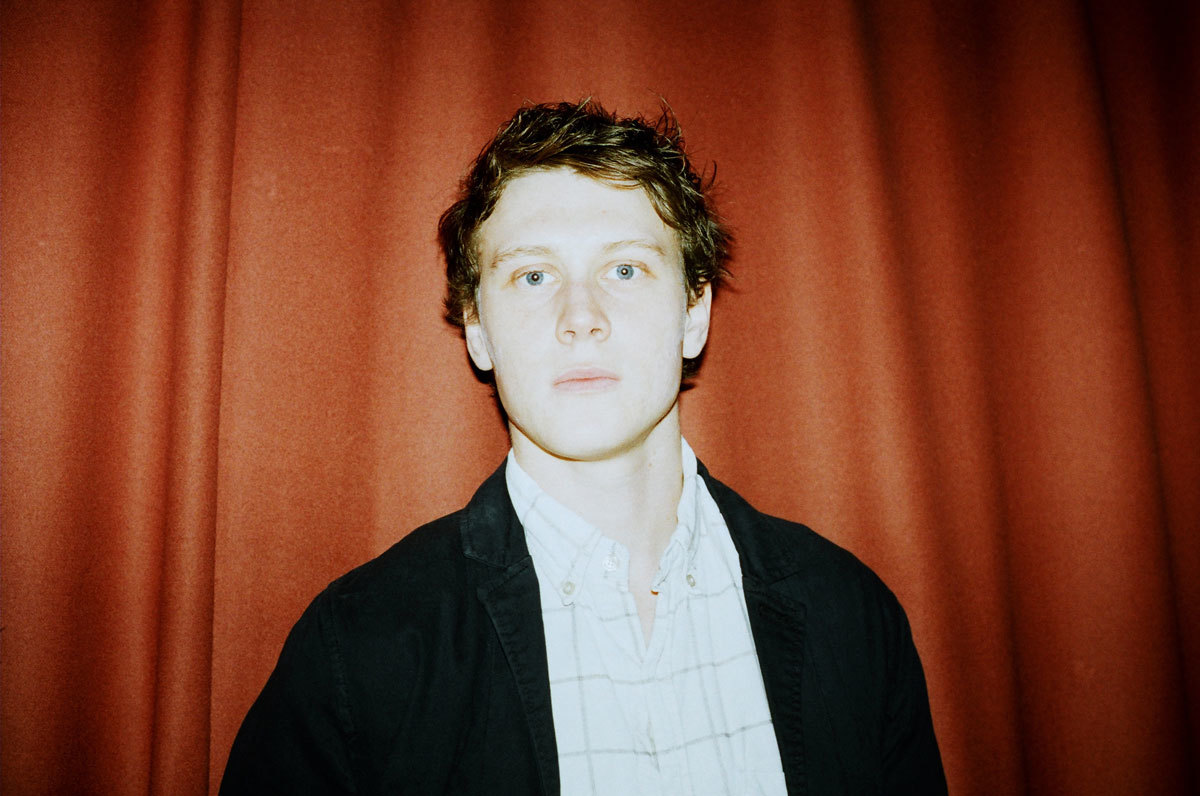Debt, drugs and desperation, Duane Hopkins’ latest film Bypass is the gritty tale of Tim, a young unemployed British boy (played by George Mackay) who’s mom is in hospital, brother on probation and little sister bunks school. Suddenly, he’s in charge of keeping himself and his younger sibling above water. It’s a film about “broken Britain” and morality when your only choice comes down to dealing drugs or having your family home repossessed. 23-year-old Mackay is almost unrecognizable in the film; gaunt, sickly and matching the grey but cinematic backdrop of the film. Getting his foot in the door as lost boy Curly in Peter Pan, and currently starring in theatrical comedy Ah! Wilderness at the Young Vic, we catch up with the versatile young actor in between rehearsals to talk about the future of working-class Britain…
What attracted you to the role of Tim?
The prospect of working with Duane. I thought his first feature film Better Things was really beautiful, and seeing that really informed my reading of the script, along with the depth given to it’s characters and story arc. Duane details certain technical elements such as the sound design so to give a sense of aesthetically what he wanted to do too.
Are there any aspects of his character that you could identify with yourself?
I think Tim’s loyalty to family; although my situation growing up didn’t exactly parallel Tim’s, the exploration of what “parenting” means within the story is something that I have come to appreciate more as I have got older and moved away from home. Tim holds onto a morality too, which I feel I would want to hold on to as well, yet for Tim, trying to do so is so much more of a challenge considering the challenges and circumstances he is faced with repeatedly.
Do you think the way Tim went about things was the right way in his situation? Is morality relative?
I think that is a very important question. It is so much easier to say ‘yes’ when you haven’t been challenged by a circumstance that puts what you hold most dear at risk. I think morals are a personal code, but what is ‘moral’ is specific sometimes to a specific environment; and it relates somewhat to the question of nature versus nurture. I think Tim’s sense of self is very strong and courageous; he is true to his nature, but lives in a world that has a different moral code to that of his own. I think Tim did all he could in his situation, but within that is both aided and hindered by the people around him, and without the faith and support of those such as Lilly and Greg, his actions would not have carried the lasting effect that they do.
Do you think Bypass is an accurate portrayal of the effects of the increasing gap between the rich and poor in Britain?
Yes I think Bypass is as accurate a portrayal as we could make of a section of society, and class and culture in Britain that is lacking in opportunity and support to get out of the place it is in. The film looks at the identity crisis (as much as the financial one) that comes with unemployment.
What was it like working with Duane Hopkins?
It was amazing. Duane and I became very close throughout the process, as did many of us working on the project. But Duane’s commitment to his work and the level of detail he demands is so exciting to be involved in. Duane encouraged experimentation, collaboration and responsibility, and to feel as close to a project as on Bypass was an incredible experience.

You also worked on Pride, do films that have a real-life message to convey appeal to you more?
Yes, everyone’s job working on the film is to assist in the story being told, so if the story that your telling is all the more worthwhile because of the comment it makes on the world, that is all the more exciting.
If there was one cause or issue you could make a film about, what would you choose?
I am sure there are many stories I do not know about, but one issue that I think has been improved enough to make us less attuned to, but is still a huge problem is the imbalance between men and women, especially in the workplace.
Tell us a bit about Ah, Wilderness!…
Ah, Wilderness! Is a Eugene O’Neill play, directed by Natalie Abrahami, and being played at The Young Vic Theatre. It is a lesser know O’Neill play about the ructions and rights of passage of a family on the Fourth of July and following day, set in 1906 New England, Connecticut.
What do you love about theatre?
I love that there is a long process of exploring the whole piece together in rehearsals and the freedom of that time. It is really wonderful that decisions are made together as a company, and we have been especially lucky working with Natalie on this that there has been so much room for that shared experience. The explorative process, and time spent trying to shape the whole piece, coupled with the immediacy of when we actually do it is really thrilling.
What are you working on next?
I will be working on the play until the 23rd of May, and then later in the summer I am going to begin shooting a mini-series called 11/22/63 based on the book by Stephen King. Coming out later in the year there is also a film called Captain Fantastic, and a BBC two part drama called The Outcast.
Credits
Text Felicity Kinsella
Photography Francesca Jane Allen
